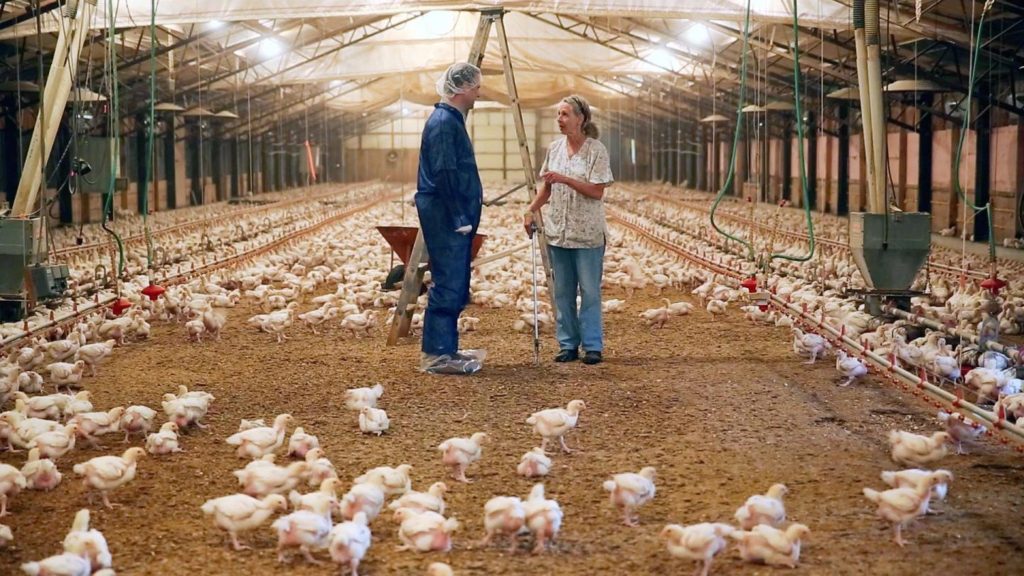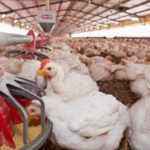DR. ROY BRISTER, Managing Director of Nutrition and Feed Mill Operations

Chickens are naturally omnivores, requiring certain essential nutrients like fat, protein, vitamins and minerals.
Most of our chickens eat a mix of corn and soybean meal, animal protein, prebiotics and probiotics and essential oils. The corn and soybean meal are good sources of fat and protein. The animal protein, which may include beef meat and bone meal, chicken meal or bakery by-product meal, makes up less than five percent of the diet but is also a major source of phosphorus, calcium and vitamins. The prebiotics and probiotics and essential oils aid in digestion. Overall, these diverse sources of protein and ingredients allow for better gut health in our flocks.
In Australia, chicken diets are higher in animal protein because there are more animals than crops there, so they can source more essential nutrients from animal protein. In Asia, diets are lower in animal protein because they prefer to eat most all of the animal—meat and offal—so they don’t have anything discarded to convert into feed.
In the U.S., since we prefer to eat the prime meat cuts and discard the lesser cuts of meat as well as bone and innards, we can use that wholesome protein and feed it to our chickens, which makes up that last less-than-five-percent of the chicken’s diet. This is a more sustainable solution for wholesome protein that would otherwise be thrown out, causing a surplus of this “waste.”
Some consumers are asking for vegetarian fed or “veg fed” chickens. Their feed contains no ingredients derived from animals. Instead, they get essential nutrients from plants or inorganic sources to compensate for the lack of animal protein. For example, phosphorous is sourced from rock mines around the world instead of from animal protein. All in all, about one-third of chickens in the U.S. are fed vegetarian diets.
So, what is best?
That depends.
We must ask ourselves what is best for the chicken? What is best for the environment? What is best for consumers? What is best for flavor and taste?
Feeding chickens a small amount of animal protein meets their nutritional needs and provides a purpose for otherwise discarded meat and parts. It’s also similar to chickens’ naturally omnivorous diets. Vegetarian diets supplement to meet those needs, though they don’t offer a solution to the discarded ingredients. Studies show no difference in flavor or taste of the meat.
Ultimately, we believe consumers should have choices and that’s what we provide at Tyson.
Published January 7, 2019.



0 Comments
Leave A Comment